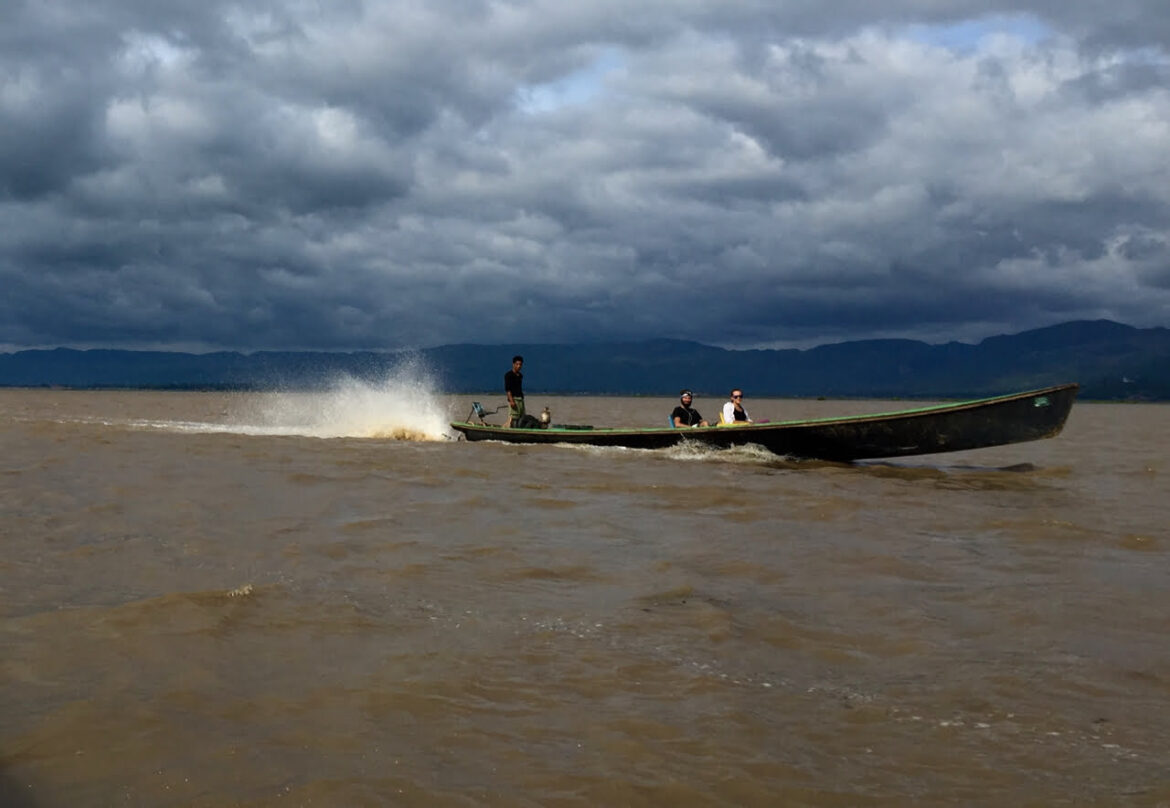The boatman looks like he would much rather be somewhere else than standing at the helm of his long, lean boat. “Now you can see the weaving factory,” he drones. “Then you can see the cigar makers. And then we eat for lunch.”
He has shipped us out of the village, onto Inle Lake. He will deliver us back on the ramshackle jetty when the sun hangs low over the mountain ranges in the west, and we will have to pay him 18.000 Kyat, some 15 US dollar. Not a bad deal, for being boated around this lake all day. But for him, it is. Even though it is the standard price. He does the round. You can see his soul withering behind his Ray-Ban glasses.
When he picked us up from our hotel, he told us he’s from one of the villages around the lake. The grey in his hair and the creases around his eyes betray he’s probably old enough to remember a time without tourists, when the country was all but closed to foreigners. But it’s hard to guess the age of Burmese people. They were poor, back then, in terms of money, but the lake supplied them with everything they needed: tomatoes, watercress, lotus, peas and eggplant. Fish, too. They would trade it for all kinds of other goods they needed. They wouldn’t care about Ray-Bans or cuts from sales in the many handicraft outlets that are part of the tour today.
We felt lucky, that day on the lake. Not so much for the price, but for the remnants we got to see of what life around here used to be like before the tourists started flocking in.
In a couple of years, nobody will grow tomatoes on the lake anymore. The villagers will be peddling stuff to the foreign masses, boating them around, giving them tacky massages or whatever ways they find to make some money, and then some more.
We felt lucky, because when we went to “eat for lunch”, it was terrific. And ridiculously cheap. Not at all the tourist fodder you might expect from a high profile destination like this. Not yet.
The boatman never smiled a single time the whole day. He was trading in another piece of his old world, for a little more money that still was a fortune to him. All the crap it could buy him must have made him dizzy and disgusted at the same time. Everybody wanted a piece of it. While on a daily basis they elbowed each other away from the honey pots, on a larger scale he and his people worked together in building another tourist Disneyland. He could see it shimmering on the lake. There was no choice. He’d bought the Ray-Bans against its glitz. Their effect wore off almost immediately. But they looked good on him.

